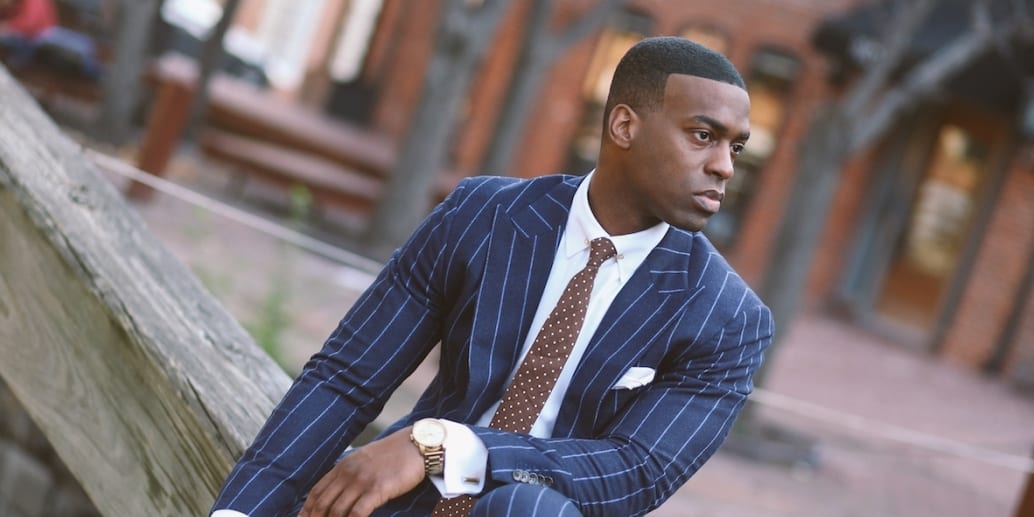Born into gospel music, Soloman Howard grew up with jazz and hip-hop, and now he specializes in opera.
Howard has a low voice: ‘A bass, or as the Italians would specify it, I am a ‘basso profundo,’ explained the tall, handsome 38-year-old. It is a gift inside the vocal box where ‘the cords are shorter, they’re wider, thicker or heavier.’ His voice has captured the ear of critics who described it as ‘sonorous’ (The New York Times), ‘superhuman’ (The Denver Post) and ‘a triumph’ (The Guardian).
He had his debut performance at the English National Opera in Barbora Horáková’s production of Giuseppe Verdi’s Luisa Miller. The Guardian critic Erica Jeal described his performance: ‘US bass Soloman Howard, singing in a fabulously velvety bass and bringing a touch of ambiguity to horrible henchman Wurm: repulsive, yes, but also tall, handsome and ripped.’
We met at the English National Opera before COVID-19 hit the performing arts and brought about the closure of theatres and opera houses in many countries.
Early years
Born and raised in Washington D.C., Howard showed signs of musical aptitude at the age of five. ‘My mum recognised my musical talent and my ability to regurgitate to her accurately music she played to me,’ said Soloman, reflecting on his early years. The church was the focal point, where his parents were among the pillars of the local community. His mother, father, grandfather and other members of the family participated in gospel groups and church choir. Musical instruments such as piano, synthesiser, guitars and percussion were just as large a part of the church and family culture, as was choral singing. His grandfather played guitar, bass guitar and drums, and his mother played the guitar.
Howard is a practising Christian rooted in the Afro-American tradition. He himself enjoyed playing the percussion and took up singing at church. ‘As a member of the Washington Performing Arts Children of the Gospel Mass Choir, we did all types of sacred music; oratorio, hymns, negro spirituals,’ he reflected. He was introduced to classical music at the age of 12 or 13: ‘When learning different styles of sacred music, I started to learn to follow along notes on a score.’
Scholarships and the path to opera
Thanks to scholarships, Howard attended Morgan State University in Baltimore, Maryland, a historically all-black university whose choir was listed in the Reader’s Digest Time Magazine as America’s best college choir at the time. ‘We traveled the world singing with just about every major symphony, orchestra worldwide,’ said Howard. By the time he graduated, his passport was full with entry and exit stamps.
‘This experience,’ Howard pointed out, ‘was an excellent introduction to appreciation and respect for singing with orchestras under different conductors.’ He learned early on to adjust fairly quickly to different conductors and orchestras. Regardless of the piece they sang – from a Mozart’s Requiem to Beethoven’s Ninth Symphony – it was training that placed Howard in good stead when moving on into the opera world.
Candidly, he pointed out that there was no opera at home; if anything, his background was a world apart from the opera world. Gospel music, blues guitar and later working with the American jazz vocalist Bobby McFerrin were not the obvious route to opera but were an integral part of confidence building that showed him that he could achieve a great deal more if he put his mind, determination and hard work into it.
‘I didn’t know specifically that I wanted to go into opera up until 2008,’ Howard admitted. That year he attended the Manhattan School of Music in New York City. There he learned the skills required of an opera singer and was given opportunities to work with accomplished performers such as Jessye Norman, Denyce Graves and Renée Fleming.
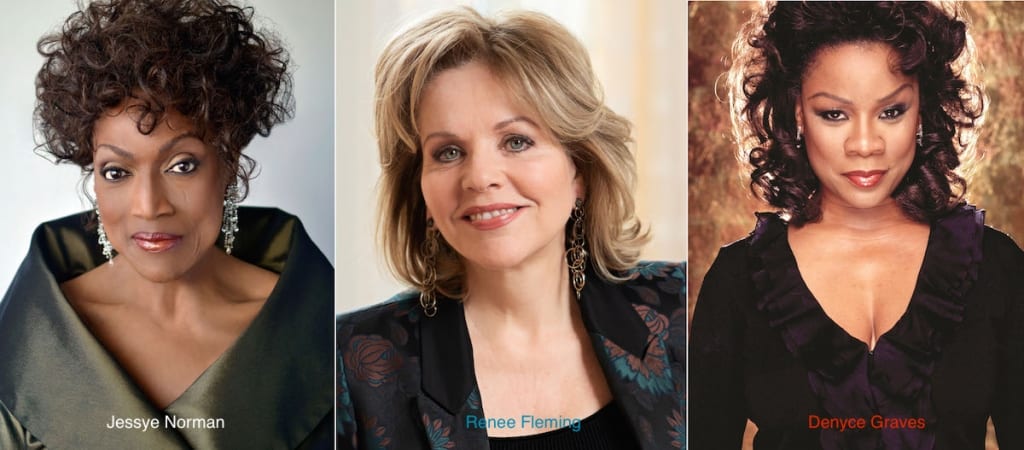
‘We weren’t necessarily doing operas. I was exposed to it … not necessarily knowing, “This what I want to do,”’ he said, but the ambition to become an opera singer started to ‘percolate’ into his ‘mind and soul.’
The ultimate turning point was when he met and worked with McFerrin, who also proved to be ‘an amazing conductor.’ McFerrin conducted Beethoven’s Symphony No. 9, and the performance was a triumph. Howard realised that the music he grew up with and classical music, though seemingly polarised genres, actually feed on each other and offer growth and challenges.
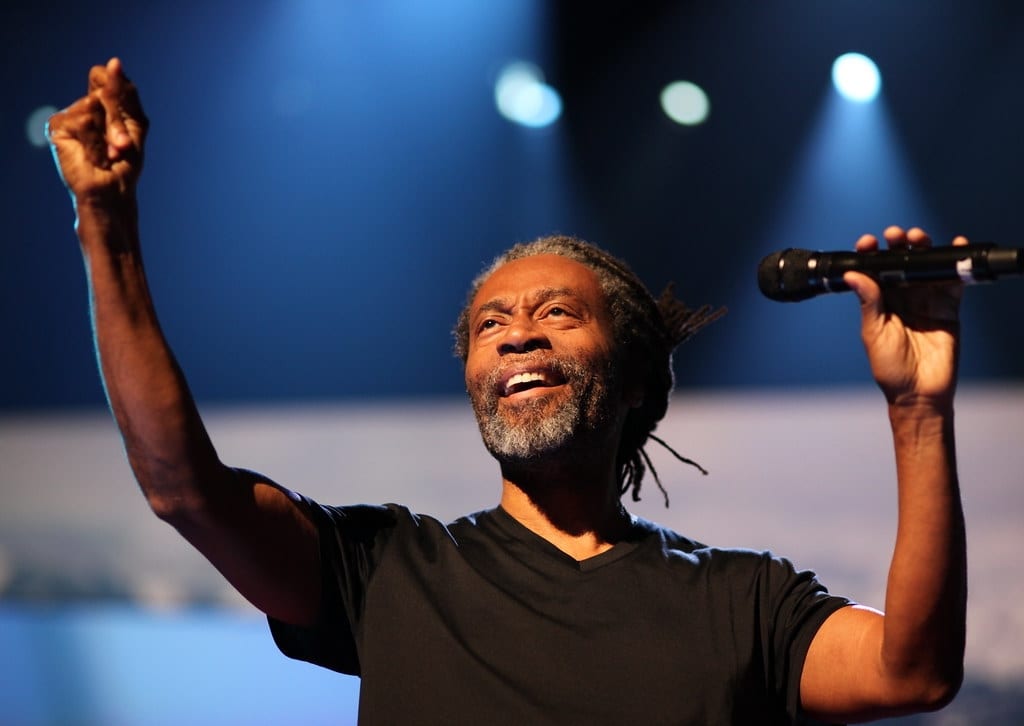
It was in 2011, back in Washington D.C., where he auditioned for the chorus of the Washington National Opera (WNO). There he was discovered and eventually introduced to WNO Maestro Plácido Domingo. He had to sing before a panel, which included Domingo, and from there he was offered a place in Domingo-Cafritz Young Artists of Washington National Opera, which guides young singers and helps launch them into international careers.
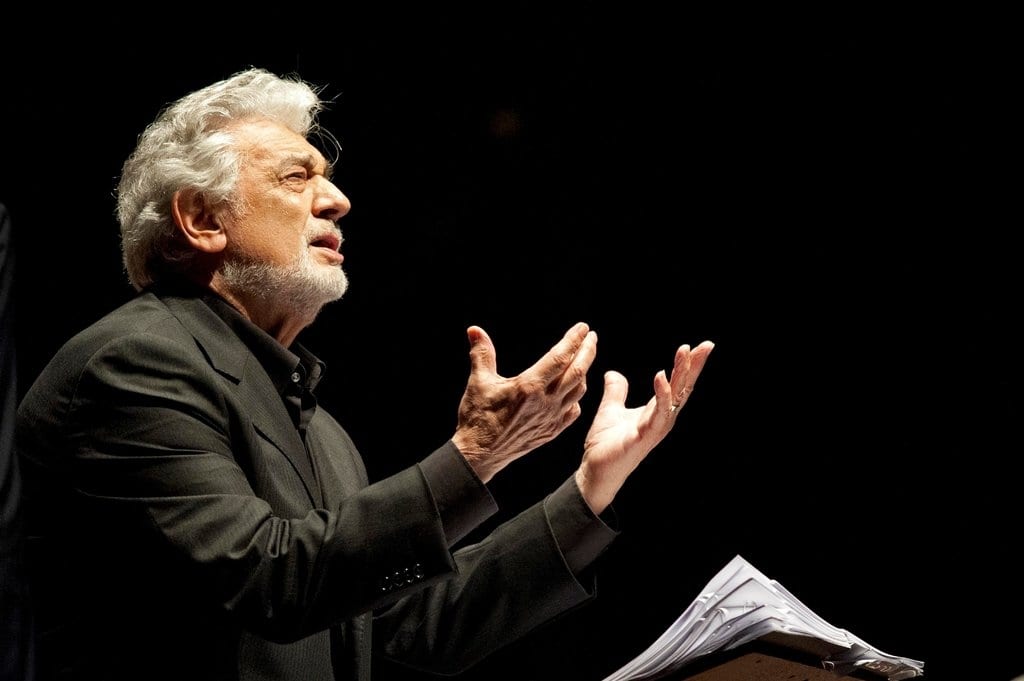
The program provides intensive study with renowned vocal and dramatic coaches and offers voice lessons, language classes, career guidance and masterclasses with Washington National Opera staff and guest artists. In short, that gave Howard the springboard he needed to make the leap to his opera debut in 2012. He was cast in the role of the High Priest Bel in Verdi’s Nabucco. ‘The rest is still history in the making,’ he said with laughter.
Acting and performing in an opera
One challenge of performing in opera is the language of the performance itself. English, in general, is ‘not the most lyrical language,’ said Howard, and British English diction is its own challenge. To get it correct and to sing healthily, a singer has to overcome the tendency to cut off the ends of words, as one might when speaking. According to Howard, it is one of the techniques and skills singers must acquire and be taught.
Howard’s approach to performing his part begins with taking his cue from the director. He explained that directors differ in their approach: Some directors have clear and fixed ideas of how they wish to see a production, and other directors are open to suggestions and ideas from the performers.
It is crucial, he pointed out, to learn and understand one’s character and then adjust to what is requested by the director, not forgetting that performance, in essence, is teamwork. ‘It’s all a dialogue between you, as an actor/singer, and the director.’
Performing ‘Wurm’ at the Lyric Opera of Chicago and English National Opera
He experienced these dialogues when, within a space of a few months, Howard performed the character of Wurm in Luisa Miller in two different opera houses: Lyric Opera of Chicago ( Lyric) and the English National Opera (ENO)
Luisa Miller is based on a play Kabale und Liebe (‘Intrigue and Love’) by the German writer Friedrich von Schiller. The title character is in love with a young man named Carlo. Howard’s character Wurm, the unscrupulous schemer who would do anything for wealth and social status, also desires Luisa Miller.
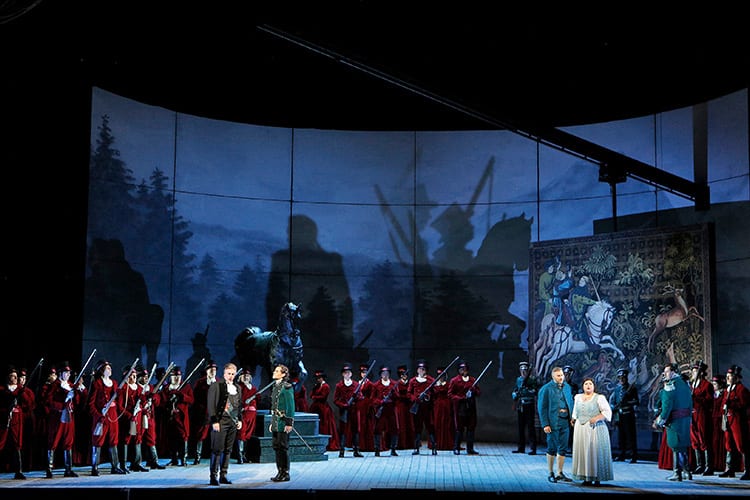
At the Lyric, Luisa Miller was performed in Italian with English surtitles. The director, Francesca Zambello, said in her notes on the production:
‘We see vice and venality most clearly in the character of Wurm, but I believe the creators are also making a larger statement about class in our society, about the cavalier way in which Luisa is ultimately destroyed. Wurm, the villain, is interesting because he’s not really nobility – he’s a henchman, a climber. He has more power than Luisa and her father, and he dresses like he belongs to the upper classes, but he will never completely ascend the social ranks.’
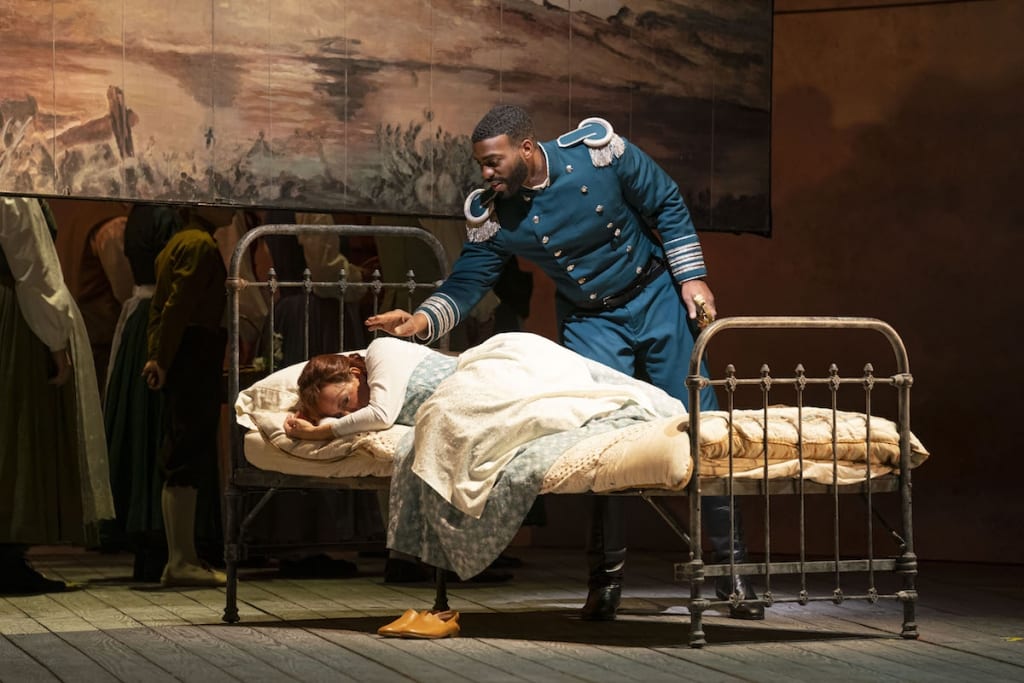
The ENO’s production was sung in English, directed by Barbora Horáková. Alexander Hall reviewed the ENO’s production, writing in Classical Source:
‘The singing that impressed me most was that of Soloman Howard as Wurm. He is an almost constant presence on stage, by turns oleaginous and Mephistophelean in demeanour, a sexual predator in the making, especially when he repeatedly gropes Luisa. Malevolence dripped from his richly resonant voice throughout: he is the arch-schemer, the architect of all the intrigues and spinner of the web that entraps the leading characters. His inky-black bass was completely at home amongst the soiled and besmirched panels of the setting.’
Though Howard performed the same evil character twice, singing the part in different languages and being directed by leading female opera directors with different interpretations made the two experiences distinct.
In the ENO production, ‘Horáková sees my character, Wurm, as the spirit behind something as opposed to the physical evil character,’ Howard said. In the Chicago production, however, ‘Wurm was creepy. He had an idea, he had a goal, a purpose, and he wanted to get that.’
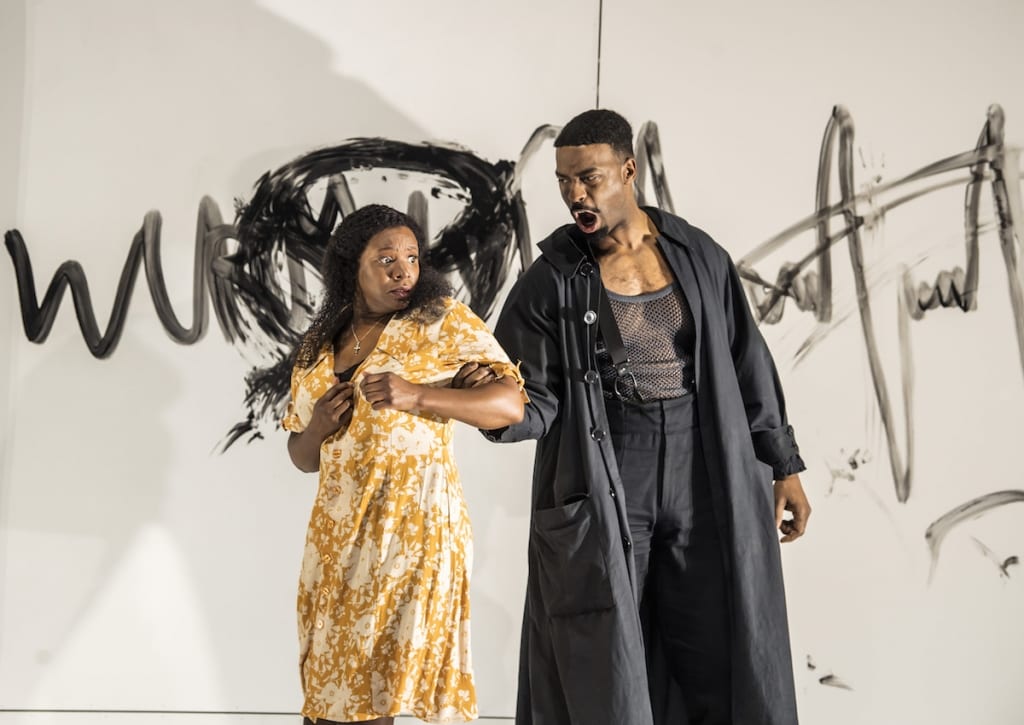
‘Here in this (English) production,’ he continued, ‘Wurm is more in control of all of the evil, the bad that’s going on but not necessarily hands-on, so more manipulative, more enjoying seeing the pain and the struggles.’
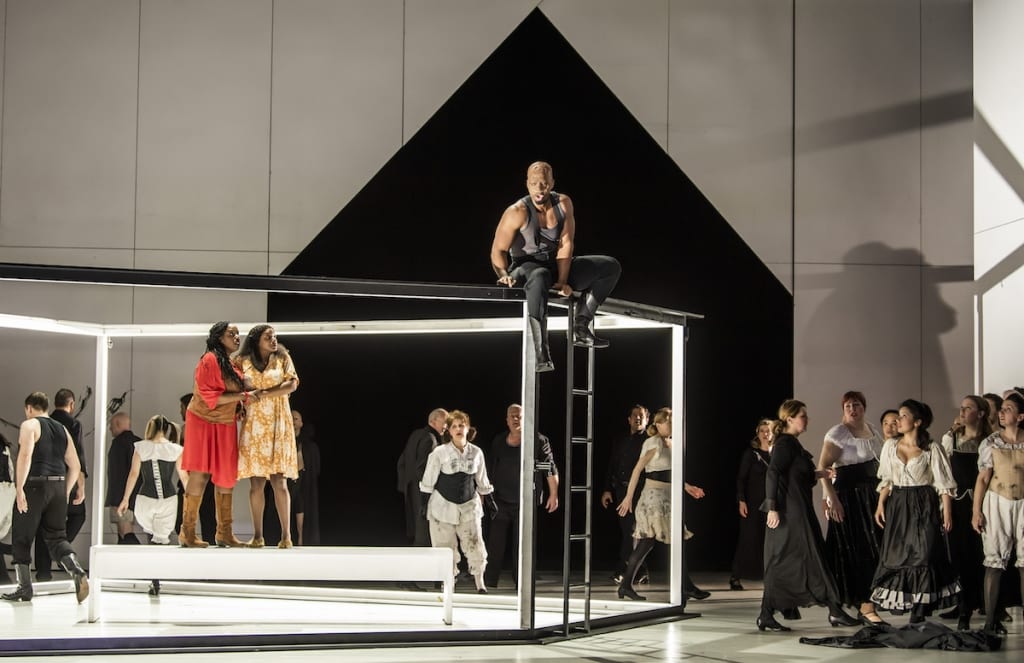
What’s next for Howard
Howard said he loves singing German as well as Richard Wagner’s music, and he looked forward to doing both in his next role: performing as the giant Fafnir at the Lyric’s new production of The Ring Cycle created by Sir David Pountney. It was set for April 13 to May 3, 2020. Unfortunately, due to COVID-19, the company was forced to cancel it and many other productions.
Time permitting, he also plays ‘Afro-Cuban, Latin percussion’ in gigs aside from his opera work. He also plays and enjoys jazz and hip-hop music, and he can now indulge in practising that music more until opera houses will once again be able to open their doors to the public.
- My thanks to Gillian Russo, a member of playstosee.com Editorial Team, for her contribution.

